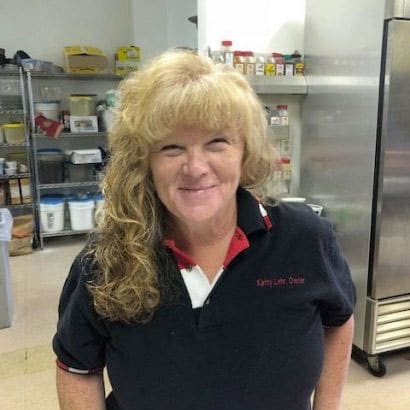Are you looking to make your catering events more environmentally friendly? This guide explores sustainable eco friendly catering practices for green events, focusing on menu design, eco-friendly operations, and guest engagement. You’ll learn practical steps to reduce waste, conserve resources, and measure the impact of your sustainable efforts. By implementing these strategies, you can host successful events that align with your environmental values and appeal to eco-conscious clients.
Eco Friendly Catering: Host Events That Taste Good & Do Good
Building a Foundation for Eco Friendly Catering
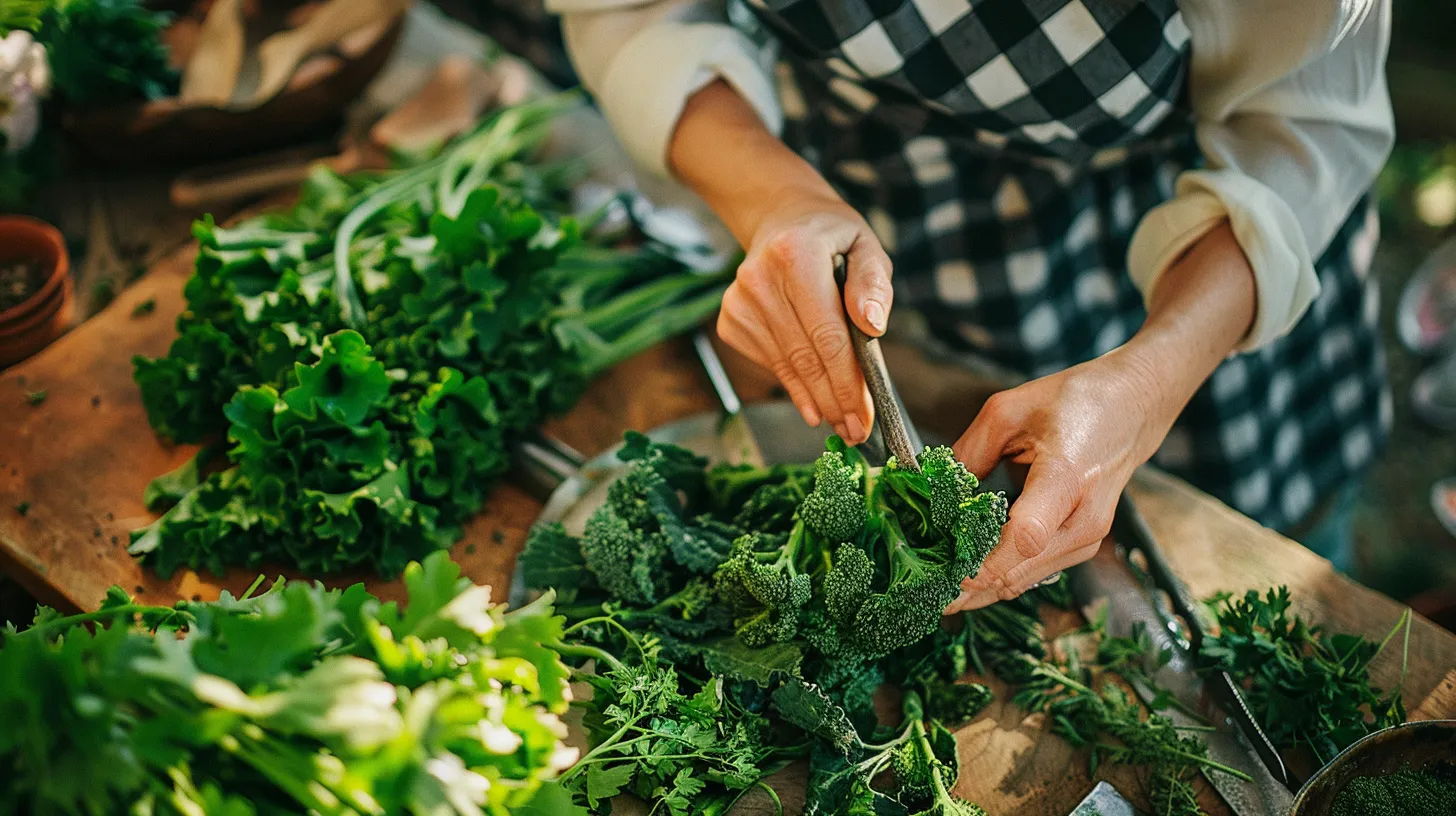
Eco-friendly catering starts with a strong foundation. This section explores sustainable ingredients, emphasizing organic and local produce for tasty salads and breakfasts. It discusses integrating plant-based options to reduce waste and supporting fair trade suppliers. Understanding these elements helps caterers create environmentally conscious menus that don’t compromise on flavor, from fresh tomatoes to ethical breakfast choices.
Understanding Sustainable Ingredients and Sourcing
Eco caterers prioritize sustainable ingredients and sourcing practices to reduce their carbon footprint. They select locally grown, organic produce and partner with environmentally friendly suppliers to ensure fresh, seasonal ingredients for their menus. This approach supports local farmers and minimizes transportation emissions, contributing to greener catering operations.
Sustainable sourcing extends beyond produce to include responsibly caught seafood, ethically raised meats, and plant-based alternatives. Eco-conscious caterers offer healthy catering options that cater to various dietary preferences, including vegetarian and vegan choices. These practices not only benefit the environment but also enhance the quality and flavor of dishes, from vibrant salads to innovative cocktail creations.
The Importance of Organic and Local Produce
Organic and local produce form the cornerstone of eco-friendly catering, reducing greenhouse gas emissions associated with long-distance transportation. Caterers who prioritize these ingredients not only support local farmers but also ensure fresher, more flavorful meals for their clients’ lunches and events. By choosing organic options, they minimize the use of harmful pesticides and promote healthier soil practices.
Sustainable catering companies often use innovative packaging solutions made from materials like polylactic acid to further reduce their environmental impact. These biodegradable alternatives help minimize waste and align with the overall ethos of eco-conscious events. For those interested in learning more about sustainable catering options, many companies encourage potential clients to contact them directly for personalized consultations.
Integrating Plant-Based Options Into Your Menu
Eco-friendly catering companies are increasingly integrating plant-based options into their menus, offering a sustainable alternative to traditional fare. These options not only reduce the environmental impact of food production but also cater to a growing demand for vegetarian and vegan choices. Restaurants and catering kitchens are adapting their recipes to create flavorful plant-based dishes that appeal to a wide range of palates.
Caterers are finding creative ways to present plant-based options, often using eco-friendly materials like kraft paper for serving. They pair these dishes with carefully selected wines to enhance the dining experience. By incorporating more plant-based items, eco-friendly catering services are reducing foodwaste and energy consumption in their kitchens while still delivering delicious and satisfying meals for events.
Supporting Fair Trade and Ethical Suppliers
Eco-friendly catering companies prioritize partnerships with fair trade and ethical suppliers to ensure their food sources align with sustainable practices. These suppliers often provide organic, locally-sourced ingredients that reduce the carbon footprint associated with long-distance transportation. By supporting fair trade, caterers contribute to better working conditions and fair wages for farmers and producers, enhancing the overall sustainability of their culinary offerings.
Ethical sourcing in eco-friendly catering extends beyond food to include sustainable packaging and waste management solutions. Caterers work with suppliers who offer biodegradable or reusable alternatives to single-use plastics, reducing environmental impact. This commitment to ethical procurement practices not only improves the quality of catering services but also educates clients about the importance of sustainability in the food industry.
Designing Menus for Sustainable Events

A Delightful Bitefull Catering designs sustainable event menus that prioritize eco-friendly practices. By crafting seasonal menus, minimizing food waste, offering compostable serving ware, and promoting wholesome choices, they reduce their carbon footprint. This approach to menu planning not only supports sustainability but also enhances the dining experience through thoughtful cooking and presentation, all while accommodating various dietary needs and payment options.
Crafting Seasonal and Theme-Based Menus
Seasonal and theme-based menus showcase the best local ingredients while reducing environmental impact. Their chefs create innovative sandwiches and meals using fresh, in-season produce, ensuring optimal flavor and sustainability. By adapting menus to reflect seasonal availability, the catering company minimizes foodwaste and supports local farmers.
The catering team also designs themed menus that align with event concepts while maintaining eco-friendly practices. From compostable serving ware for outdoor picnics to elegant dessert presentations for formal gatherings, they tailor each menu to meet customer expectations and sustainability goals. This approach not only enhances the dining experience but also educates clients about the benefits of seasonal, sustainable eating.
Minimizing FoodWaste Through Strategic Planning
Strategic planning is employed to minimize food waste in eco-friendly events. Catering technology is used to accurately forecast ingredient needs, reducing overproduction. The company also repurposes leftover cuisine creatively, transforming excess ingredients into new dishes or donating to local food banks.
To further reduce waste, the catering team opts for sustainable tableware options, including bamboo utensils and compostable plates. They communicate with clients via email to confirm final guest counts and dietary restrictions, ensuring precise portioning. This comprehensive approach to waste reduction aligns with their commitment to sustainable catering practices.
Offering Reusable or Compostable Serving Ware
Reusable and compostable serving ware is used to reduce environmental impact at events. Their eco-friendly options include biodegradable plates and utensils made from sustainable materials, perfect for serving cheese platters and coffee breaks. The catering team carefully selects these items to complement their sustainable menu offerings while maintaining a high-quality dining experience.
By incorporating reusable serving ware, such as elegant glass coffee cups and durable cheese boards, the catering company minimizes waste without compromising style. They also provide compostable alternatives for larger events, ensuring that all aspects of their catering service align with their commitment to sustainability. This approach allows clients to enjoy a guilt-free dining experience while supporting eco-friendly practices.
Promoting Healthy and Wholesome Dietary Choices
Healthy and wholesome dietary choices are promoted in sustainable event menus. They offer a variety of nutritious options, including fresh salads, whole grain dishes, and lean proteins, catering to diverse dietary needs and preferences. The company sources organic ingredients whenever possible, ensuring that their meals are not only healthy but also environmentally friendly.
The catering team works closely with clients to create balanced menus that incorporate superfoods and nutrient-rich ingredients. They provide detailed nutritional information for each dish, helping guests make informed choices about their meals. By emphasizing the health benefits of their eco-friendly offerings,
Implementing Eco Friendly Practices in Catering Operations
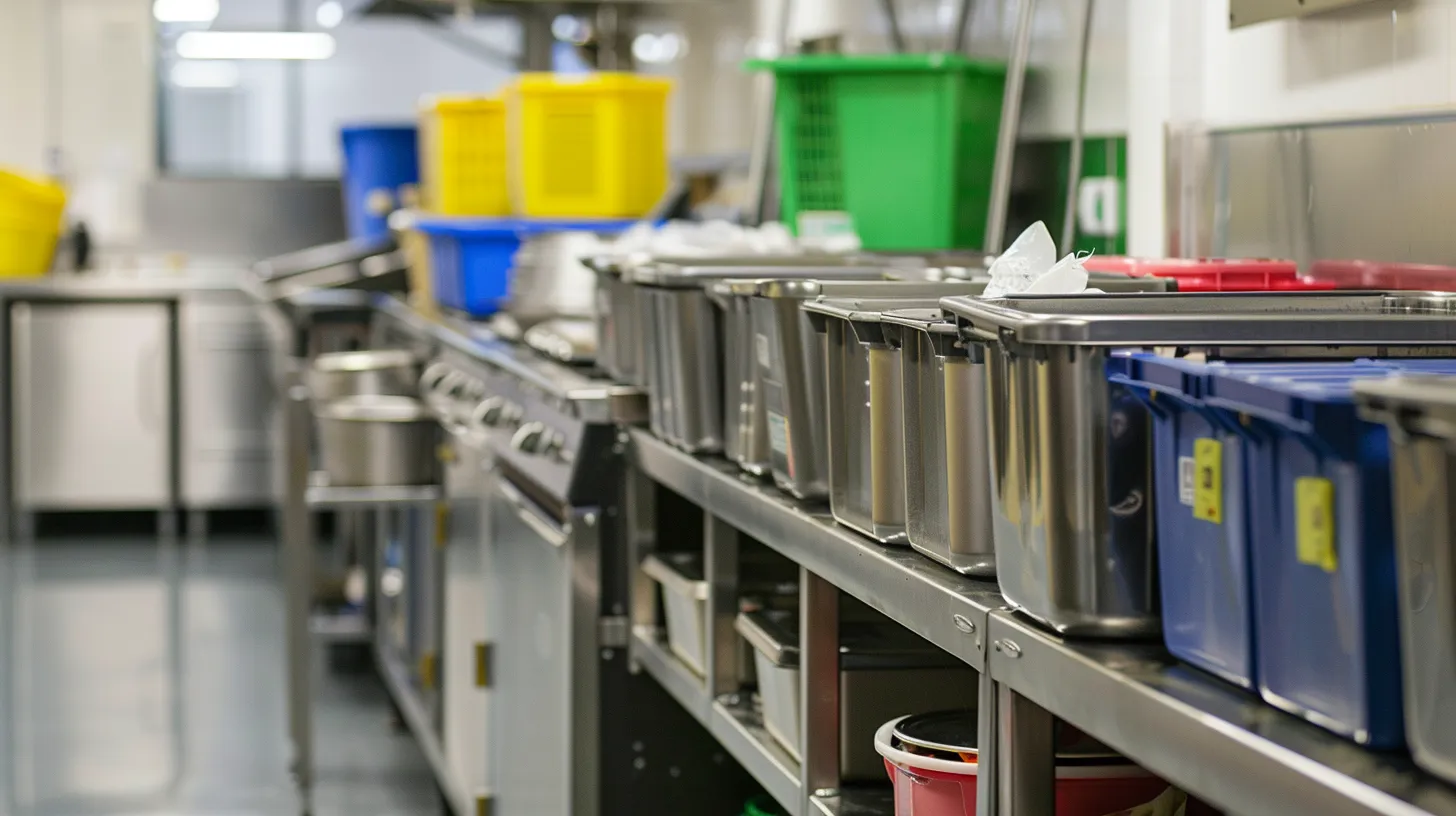
Eco friendly caterers use eco-friendly practices in their operations to create sustainable events. They use energy-efficient cooking techniques and equipment, reduce single-use plastic consumption, employ sustainable transportation methods, and implement recycling and composting systems. These practices minimize environmental impact while maintaining high-quality service for metro Atlanta area clients.
Energy Efficient Cooking Techniques and Equipment
Energy-efficient cooking techniques and equipment are used to reduce environmental impact. Induction cooktops and convection ovens are used, which use less energy and cook food faster than traditional appliances. The catering team also implements smart scheduling to maximize oven usage and minimize idle time, further conserving energy during food preparation.
The company invests in Energy Star certified appliances for their kitchen, including refrigerators and dishwashers. They train staff on energy-saving practices, such as proper equipment maintenance and using lids on pots to retain heat. These measures not only reduce energy consumption but also help maintain food quality and flavor, aligning with their commitment to sustainable catering in the metro Atlanta area.
Reducing Single-Use Plastic Consumption
Reduce single-use plastic consumption in operations. Replace disposable plastic utensils and containers with reusable or biodegradable alternatives made from bamboo, sugarcane, or cornstarch. Use glass water dispensers and reusable cups for beverages, eliminating the need for plasticwater bottles at events.
To further minimize plasticwaste, the catering team encourages clients to opt for bulk condiment dispensers instead of individual packets. They also use eco-friendly food wraps and storage solutions in their kitchen, such as beeswax wraps and silicone bags, reducing reliance on plastic wrap and zip-lock bags. These efforts significantly decrease the environmental impact of their catering services in the metro Atlanta area.
Sustainable Transportation and Delivery Methods
Sustainable transportation and delivery methods are used to reduce the carbon footprint. They use fuel-efficient vehicles for food delivery and prioritize route optimization to minimize travel distances. The company also invests in electric or hybrid vehicles for short-distance deliveries within the metro Atlanta area.
To further enhance sustainability, the catering team uses reusable, insulated containers for food transport, eliminating the need for disposable packaging. They also collaborate with local suppliers to reduce transportation distances for ingredients. These practices help caterers maintain their commitment to eco-friendly operations while serving clients efficiently:
| Sustainable Practice | Implementation | Benefit |
|---|---|---|
| Fuel-efficient vehicles | Use for food delivery | Reduced carbon emissions |
| Route optimization | Minimize travel distances | Lower fuel consumption |
| Electric/hybrid vehicles | Short-distance deliveries | Decreased environmental impact |
| Reusable containers | Food transport | Elimination of disposable packaging |
| Local supplier collaboration | Ingredient sourcing | Reduced transportation distances |
Implementing Recycling and Composting Systems
Comprehensive recycling and composting systems are used to minimize waste at events. The company provides clearly labeled bins for recyclables, compostables, and landfill waste, educating staff and guests on proper sorting. They partner with local recycling facilities and composting services to ensure proper disposal of materials collected during events.
The catering team also focuses on reducing waste at the source by using reusable or compostable serving ware and minimizing packaging. They track waste data to continually improve their recycling and composting efforts, setting targets for waste reduction at each event. This commitment to sustainable waste management aligns with their overall eco-friendly catering approach in the metro Atlanta area.
Engaging Guests With Sustainable Initiatives

Engage guests in sustainable initiatives, enhancing the eco-friendly experience of events. They inform attendees about green practices, involve them in waste reduction efforts, provide eco-conscious favors, and highlight sustainability through event decor. These approaches educate and inspire guests, making sustainability an integral part of the catering service in the metro Atlanta area.
Informing Guests About Eco Friendly Practices
Educate guests about their eco-friendly practices through informative displays at events. Create visually appealing signage that highlights the sustainable ingredients used in their dishes, the energy-efficient cooking methods employed, and the waste reduction strategies implemented. This approach helps guests understand the environmental impact of their dining experience.
The catering team also trains staff to engage with guests, answering questions about sustainability initiatives. They provide information cards at each table detailing the eco-friendly aspects of the event, including:
- Locally sourced ingredients
- Compostable serving ware
- Energy-efficient cooking techniques
- Waste sorting and recycling efforts
This interactive approach fosters awareness and encourages guests to adopt sustainable practices in their own lives.
Involving Guests in Waste Reduction Efforts
Involves guests in waste reduction efforts during events. They provide clear instructions at waste stations, guiding attendees on proper sorting of recyclables, compostables, and landfill waste. The catering team also encourages guests to use reusable water bottles and coffee cups, offering refill stations throughout the venue.
To further engage guests, introduce fun challenges and incentives for waste reduction. They organize friendly competitions between tables or groups to see who can generate the least amount of waste during the event. Winners receive eco-friendly prizes, fostering a sense of community and environmental responsibility among attendees.
Providing Eco Conscious Favors or Takeaways
Offers eco-conscious favors that align with sustainable catering practices. Provide guests with small potted herbs or succulents as takeaways, encouraging them to continue the green initiative at home. These living gifts serve as lasting reminders of the event’s commitment to sustainability.
The catering company also creates custom seed packets filled with locally sourced, non-GMO seeds as favors. Guests can plant these seeds in their gardens, extending the eco-friendly experience beyond the event. Each packet includes care instructions and information about the environmental benefits of growing plants, further educating attendees about sustainable practices.
Highlighting Sustainability Through Event Decor
Showcases sustainability through thoughtful event decor choices. They use potted plants and herbs as centerpieces, which guests can take home and continue growing. The company also incorporates upcycled materials into their decorations, such as repurposed glass bottles as vases or reclaimed wood for signage.
The catering team selects eco-friendly linens and napkins made from organic cotton or recycled materials. They create stunning tablescapes using locally sourced, seasonal flowers and foliage, reducing the carbon footprint associated with imported blooms. These sustainable decor elements not only enhance the event’s aesthetic but also serve as conversation starters about environmental responsibility.
Guests left satisfied, aware of their eco-friendly choices. Now we measure our impact, proving sustainability‘s worth.
Measuring Impact and Success of Sustainable Catering
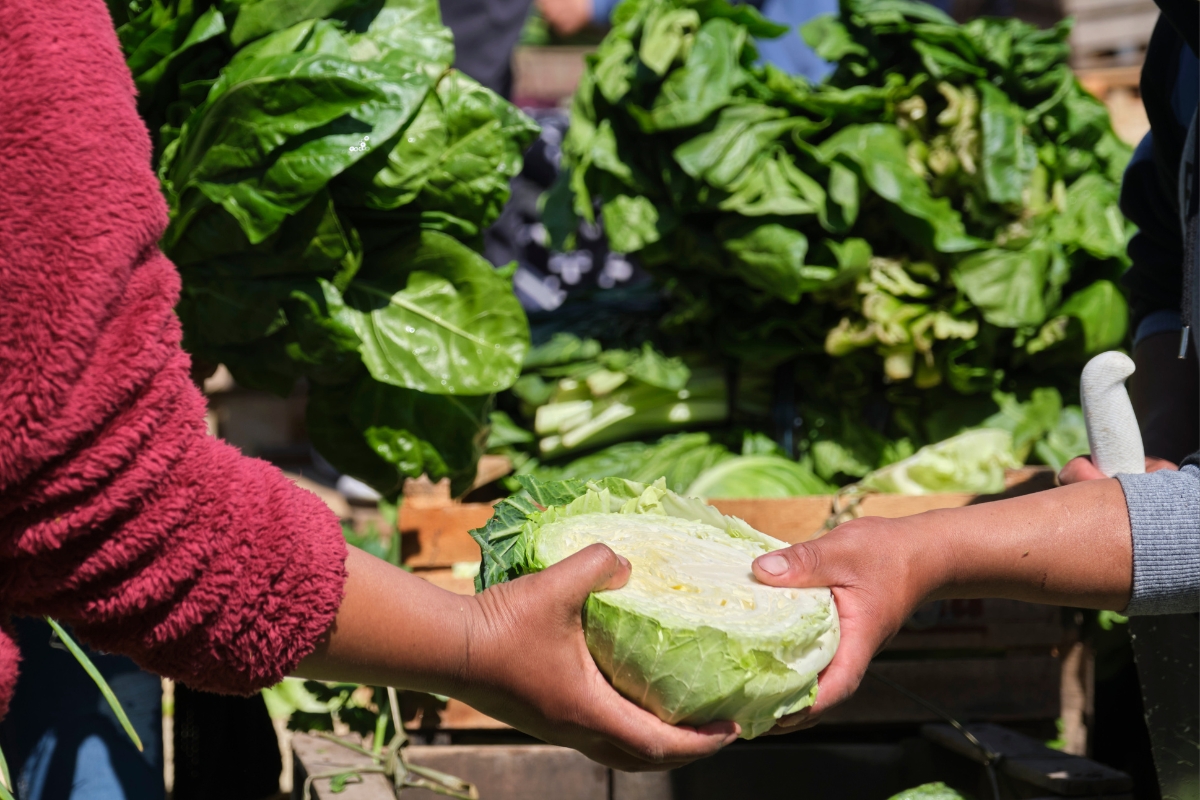
Measure the impact of its sustainable practices through comprehensive tracking and assessment. The company monitors waste reduction, food donation results, and client feedback on eco-friendly choices. They evaluate progress towards sustainability goals and share success stories with stakeholders, demonstrating their commitment to green catering in the metro Atlanta area.
Tracking Waste Reduction and Food Donation Results
Tracks waste reduction efforts at each event, measuring the volume of recyclables, compostables, and landfill waste generated. The company uses digital tools to record and analyze this data, allowing it to identify trends and areas for improvement in its sustainable practices. They also monitor food donation results, carefully documenting the quantity and types of surplus food donated to local charities after events.
The catering team sets specific waste reduction targets for each event and compares actual results against these goals. They share this information with clients, demonstrating the tangible environmental impact of choosing eco-friendly catering options. By tracking and reporting these metrics, this allows you to refine sustainability strategies and inspire clients to prioritize green practices in future events.
Assessing Feedback on Eco Friendly Choices
Actively assess feedback on their eco-friendly choices to measure the success of their sustainable catering initiatives. They distribute post-event surveys to clients and guests, gathering opinions on the quality of plant-based options, the effectiveness of waste reduction efforts, and the overall eco-friendly experience. The company analyzes this feedback to identify areas for improvement and gauge client satisfaction with their green practices.
The catering team also monitors social media mentions and online reviews related to their sustainable catering services. They track positive comments about their eco-conscious approach and address any concerns or suggestions promptly. This proactive feedback assessment helps with the refinement of sustainable offerings and tailor their services to meet the evolving expectations of environmentally conscious clients in the metro Atlanta area:
| Feedback Source | Assessment Method | Action Taken |
|---|---|---|
| Post-event surveys | Data analysis | Identify improvement areas |
| Social media mentions | Sentiment tracking | Address concerns promptly |
| Online reviews | Regular monitoring | Refine sustainable offerings |
| Client testimonials | Compilation and analysis | Showcase success stories |
Evaluating Sustainability Goals and Progress
Evaluates sustainability goals and progress through regular assessments of key performance indicators. The company tracks metrics such as energy consumption, water usage, and waste reduction across all catering operations. They compare these figures against established benchmarks to measure their advancement towards eco-friendly objectives.
The catering team conducts quarterly reviews of their sustainability initiatives, identifying successful practices and areas needing improvement. They analyze data from event reports, client feedback, and supplier evaluations to gain a comprehensive understanding of their environmental impact. This ongoing evaluation process allows catering teams to refine their strategies and set new, ambitious goals for sustainable catering in the metro Atlanta area.
Sharing Success Stories With Stakeholders
Share success stories with stakeholders to demonstrate the positive impact of their sustainable practices. Create detailed case studies highlighting significant waste reduction achievements and successful plant-based menu implementations at various events. The company presents these stories during client meetings and industry conferences, showcasing their commitment to eco-friendly catering in the metro Atlanta area.
The catering team also publishes sustainability reports on their website, featuring quantitative data on energy savings, water conservation, and foodwaste reduction. They include testimonials from satisfied clients who appreciate the company’s green initiatives. Transparently sharing these success stories builds trust with stakeholders and inspires other businesses to adopt sustainable practices.
Future Trends in Eco Friendly Catering
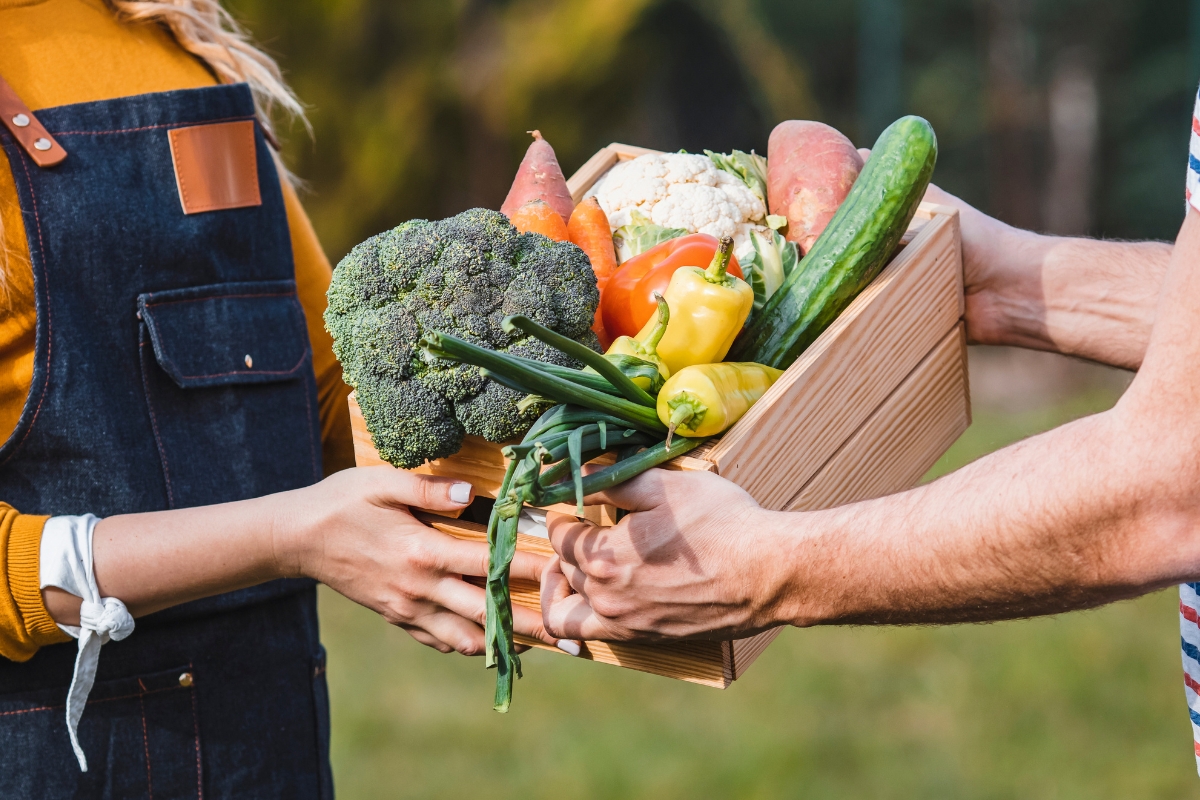
Anticipate future trends in eco-friendly catering, focusing on innovative sustainable cuisine and incorporating technology to enhance green events. The company explores zero-waste approaches and adapts to growing consumer demands for sustainability. These forward-thinking practices position the industry as a leader in environmentally conscious event services in the metro Atlanta area.
Innovations in Sustainable Cuisine
Embrace innovative, sustainable cuisine techniques to stay ahead in eco-friendly catering. They experiment with novel plant-based proteins, such as algae-based alternatives and lab-grown meats, offering clients cutting-edge options that reduce environmental impact. The company also explores fermentation and preservation methods to extend the shelf life of ingredients, minimizing foodwaste.
The catering team incorporates edible packaging into their menu designs, using materials like seaweed-based films for appetizers and biodegradable rice paper wraps for desserts. They also utilize 3D food printing technology to create intricate, low-waste garnishes and decorations, enhancing the visual appeal of dishes while maintaining their commitment to sustainability.
The Role of Technology in Sustainable Events
Harness technology to enhance sustainability in events. Utilize smart energy management systems to optimize power consumption in their kitchen and event spaces. The company also employs advanced food waste tracking software, allowing it to precisely measure and reduce excess food production.
The catering team incorporates digital menus and ordering systems, eliminating the need for paper and reducing waste. They also use virtual reality technology to showcase sustainable event setups to clients, allowing for eco-friendly planning without physical mockups. These technological innovations help caterers maintain their commitment to sustainability while improving operational efficiency.
Growing Popularity of Zero Waste Events
Recognize the growing popularity of zero-waste events and adapt its practices accordingly. Implements comprehensive waste reduction strategies, including careful portion control, composting of food scraps, and using reusable or biodegradable serving ware. They work closely with clients to design menus that minimize waste while maintaining high-quality culinary experiences.
To achieve zero-waste goals, the catering team educates event staff and guests about proper waste sorting and disposal. They partner with local recycling facilities and composting services to ensure all materials are processed correctly. Offer post-event reports detailing waste reduction achievements, helping clients quantify the environmental impact of their eco-friendly choices.
Anticipating Consumer Demands for Sustainability
Stay ahead of consumer demands for sustainability by continuously researching and implementing eco-friendly practices. They conduct regular surveys and focus groups to understand client preferences for green catering options, adapting their services to meet evolving expectations. The company also monitors industry trends and environmental regulations to anticipate future sustainability requirements.
To meet growing consumer demands, expand your range of locally sourced, organic menu options, and invest in cutting-edge sustainable technologies. Offer transparency in their sourcing and waste management practices, providing detailed information to environmentally conscious clients. The catering team also develops educational programs to raise awareness about sustainable event planning, empowering clients to make informed choices:
- Regular client surveys and focus groups
- Monitoring industry trends and regulations
- Expanding locally sourced, organic menu options
- Investing in sustainable technologies
- Providing transparency in sourcing and waste management
- Developing educational programs on sustainable event planning
Frequently Asked Questions
How can catering companies build a foundation for eco-friendly practices?
Catering companies can build eco-friendly foundations by sourcing local, organic ingredients, implementing waste reduction strategies, using energy-efficient equipment, and opting for compostable or reusable serving ware. These practices reduce environmental impact while appealing to environmentally conscious clients in the metro Atlanta area.
What considerations are important when designing menus for sustainable events?
When designing menus for sustainable events, consider local and seasonal ingredients, plant-based options, minimizing foodwaste, responsibly sourced proteins, and eco-friendly packaging. Balance nutritional value with environmental impact, and collaborate with suppliers who prioritize sustainable practices to create a menu that aligns with event goals.
How can caterers implement eco-friendly practices in their daily operations?
Caterers can implement eco-friendly practices by sourcing local, seasonal ingredients, reducing foodwaste through careful planning and composting, using energy-efficient equipment, opting for reusable or biodegradable serving ware, and minimizing water usage. These strategies help reduce environmental impact while maintaining quality service.
What are effective ways to engage guests with sustainable initiatives?
Engage guests with sustainable initiatives by offering locally sourced, seasonal menus and eco-friendly tableware. Highlight waste reduction efforts, provide plant-based options, and use digital invitations. Educate guests on sustainability practices and encourage participation in eco-friendly activities during the event.
How can catering companies measure the success of their sustainable practices?
Catering companies can measure sustainable practices’ success by tracking foodwaste reduction, energy consumption, local sourcing percentages, and client feedback on eco-friendly initiatives. Analyzing these metrics over time helps gauge progress and identify areas for improvement in sustainability efforts.
Sustainability Meets Sophistication—Let’s Cater Your Green Event!
Planning a green event goes beyond decor—it starts with mindful catering choices that reduce waste and support local ecosystems. At A Delightful Bitefull Catering, we specialize in delicious, customizable menus featuring seasonal, locally sourced ingredients, compostable serveware, and zero-waste practices—all tailored to your event’s vision. Whether you’re hosting a wedding, corporate gathering, or intimate dinner, let us help you celebrate sustainably without sacrificing flavor or style. Ready to impress guests while protecting the planet? Call (770) 565-4146 today to discuss your eco-conscious event menu.


